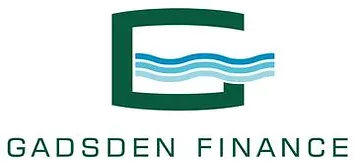Factors That Can Affect the Cost of Your Personal Loan
Big expenses can come up when you least expect them to. You may have a sudden medical bill to pay for, unexpected unemployment, or any other financial hiccup wherein you would need a large amount of cash quickly. Fortunately, personal loans can aid you with these sudden expenses.
These loans offer a great deal of flexibility and are available for borrowers regardless of their credit scores. You can expect higher interest rates if you have a low credit score, but you will still be approved for the loan itself.
In this article, we will run you through everything you need to know about personal loans.
All About Personal Loans Work
Personal loans are collateral-free installment loans that can provide you with cash for various financial needs. They are ideal for sudden expenses such as a home repair or a sudden medical bill.
Unlike a credit card that you pay at your own pace, a personal loan gives you a lump sum which you pay back with fixed monthly payments on a predetermined schedule. All of the details are ironed out from the very beginning: how much you borrowed, how much you are expected to pay, and when your loan must be fully paid.
Personal loans are unsecured or have no collateral, which can be riskier for the lender, so borrowers are usually charged higher interest rates.
Factors That Can Affect the Cost of Personal Loans 
The total cost of your loan is determined by the annual percentage rate (APR). This includes the interest rate and other fees you will be charged. APR can vary depending on several factors, including the following:
- Credit Score: Your credit score has a significant impact on your loan as it can determine whether your application will be approved at all. Having a lower credit score indicates that you are a risky borrower. The lender will offset this risk by charging you a higher interest rate.
- Income: If you have an inconsistent income, the lender will be unsure if you can pay for the monthly loan payment.
- Debt Profile: Another factor lenders will calculate is the amount of your monthly income that goes to debt repayments. Your debt-to-income ratio will indicate whether you can repay your loan.
- Loan Size: The interest rate is a percentage of your loan. If your loaned amount is bigger, you may be charged a higher interest rate.
- Loan Term: A shorter repayment term will result in higher monthly payments, and you are charged less in interest. In contrast, although your monthly repayment amount will be lower for longer repayment terms, you will be charged a larger interest rate. This is why it’s best to get the shortest repayment term you can afford to pay for.
Comparing Personal Loans
Even a small loan can affect your quality of life if the monthly payment cannot fit your budget. You may be charged late fees if you miss a payment, which can then affect your ability to borrow in the future.
Make sure to compare rates and loan terms and go for a lender you can afford. If you don’t need the money immediately and have a low credit score, you can raise your credit score first to get better interest rates.
Conclusion
Personal loans are ideal for sudden expenses and are not very risky as long as you go for the rate and terms you can afford. Unlike a credit card, you know exactly how much you are borrowing, how much you need to repay, and how long it will take for the loan to be fully paid.
Are you looking for reliable, loan companies in Anniston, AL? Calhoun Finance Company offers personal loan sizes to fit your needs. Send us an application today!
